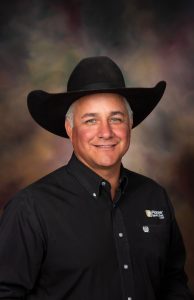Neighboring state’s top legal official had indicated ‘all options’ were being explored to compel eminent domain for carbon dioxide transmission projects in the Mount Rushmore State
BISMARCK, N.D. – North Dakota’s decision not to sue South Dakota over its ban on eminent domain for carbon pipelines has landowners and their allies breathing a sigh of relief.
Last week, North Dakota Attorney General Drew Wrigley suggested South Dakota’s House Bill 1052 — dubbed a “kill shot” to the long-planned, 2,000-mile carbon dioxide transmission line from Iowa to North Dakota that would cross nearly two dozen eastern South Dakota counties — could merit legal action. On Monday, he announced his office would not pursue a lawsuit, despite the restrictions widely seen as fatal to Summit Carbon Solutions’ increasingly mired project.
The decision drew praise from South Dakota leaders and landowner rights advocates.
“Our law protecting landowners from eminent domain abuse will stand in South Dakota,” said House Speaker Jon Hansen.
Hansen last week publicly accused Wrigley of being a “puppet” for Summit Carbon Solutions, formed in 2021 in partnership with regional ethanol plants that sought to pump carbon byproducts to underground storage facilities in North Dakota.
Summit has obtained pipeline route and storage permits in North Dakota, but South Dakota regulators have so far denied the company a route. Minnesota also prohibits eminent domain for carbon dioxide pipelines, while Nebraska does not have a state agency with authority over them. Iowa regulators recently asked Summit to alter its pipeline permit.
House Bill 1052 was enacted in March after South Dakota voters in 2024 rejected a landowner rights bill that had been referred to the ballot. Backers of the Summit project referred to HB 1052 as a “kill shot” to the pipeline, but Gov. Larry Rhoden said he disagreed, echoing sponsors who argued the measure simply required easements to be voluntary.
Wrigley called the South Dakota legislation “a bad policy choice” and a “hostile act” against North Dakota in an interview with Scott Hennen on WZFG, The Flag, based in Fargo. But his reversal comes after determining there was no legal avenue to compel South Dakota to grant Summit Carbon Solutions eminent domain powers.
South Dakota Attorney General Marty Jackley said it’s the right decision.
“I have known Attorney General Wrigley for 20 years, serving together as United States attorneys and now as Attorneys General for our respective states, and I respect his ability as an attorney,” Jackley said. “Our long-standing relationship, respect and ability to openly communicate helped us come to this favorable resolution for both states.”
Jackley said South Dakota’s eminent domain law was supported by the voters, legislators, and signed by Rhoden. “As a proud owner of a family farm West River and ranch near Pierre, I understand the importance of private property owner rights,” Jackley said. “As Attorney General I will continue to fight for and support the rights of private property owners and the laws of this state.”
Hansen acknowledged Jackley’s involvement.
“Shout out of thanks to our own South Dakota Attorney General Marty Jackley for having the backs of South Dakota landowners against the (North Dakota Attorney General’s) threat,” he said.





